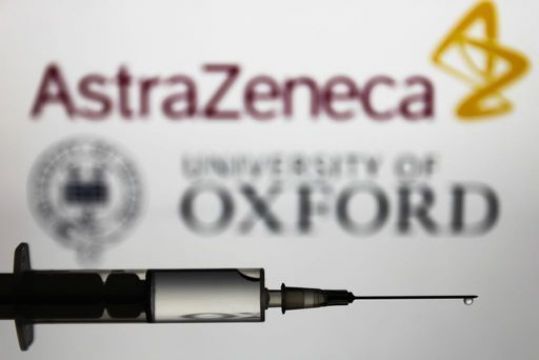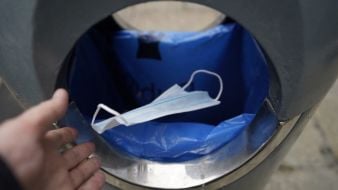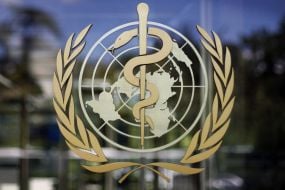Germany expects the European Union to give rapid approval to the coronavirus vaccine developed by Oxford University and AstraZeneca that was cleared for use in Britain today, its top vaccines official has said.
Berlin's support for AstraZeneca comes as EU member countries seek to fill supply chains for vaccination drives that began last weekend using a shot from Pfizer/BioNTech - the only one to win EU approval so far.
Germany has made relatively quick headway, saying 78,000 shots have been administered, but there have been reports of setbacks with some vaccination centres shutting down temporarily because of supply shortages.
Responding to complaints in the capital Berlin and in the federal states of Brandenburg and Bavaria of delays in delivering the Pfizer vaccine, the Health Ministry said further shipments were due on January 8th and January 18th.
Fatalities linked to Covid-19 in Germany hit a record daily high of 1,129 today, bringing total deaths to 32,107, as local authorities caught up with a Christmas reporting backlog. Total confirmed cases reached 1.69 million.
The mass-selling Bild newspaper reported that Chancellor Angela Merkel's chief of staff had agreed during a video conference with regional leaders to extend a lockdown until January 24th or 31st.
Merkel will finalise the date and details of the measures during talks with regional leaders in the new year.
Klaus Cichutek, head of the Paul Ehrlich Institute, said that, thanks to the rolling EU review of the AstraZeneca vaccine, it would be possible to take a quick decision once a formal application was submitted.
No such application had been received by the European Medicines Agency (EMA) by this morning, Cichutek told reporters, but a debate in its councils would follow as soon as it arrived.
"Once the application is submitted a decision can be taken quickly," Cichutek told a news conference.
"Thorough and quick"
German health minister Jens Spahn urged "a thorough and quick examination" of the AstraZeneca vaccine by EMA, in addition to the expected clearance of a shot from Moderna in early January.
"Vaccination is the key to getting out of this pandemic," Spahn told reporters.
"Preventing death and suffering is key. It is the key to getting our normal lives back."
Spahn confirmed that Germany still expected to take delivery of 1.3 million doses of the Pfizer shot by the end of the year. Then, after the two consignments in January, weekly shipments of 670,000 doses would follow each Monday, his ministry said.
Even with increased supply going into early 2021, it will take months to inoculate the wider population.
"I can only appeal for patience," he said.
"Please don't forget that we have a vaccine, that is reason enough for joy and optimism."
Amid heightened contagion, continued strong reductions of social contacts would continue to be necessary, officials said.
"It will take months until enough people are vaccinated to reduce the circulation of the virus in the population," said Lothar Wieler, head of the Robert Koch Institute responsible for coordinating Germany's pandemic response.







